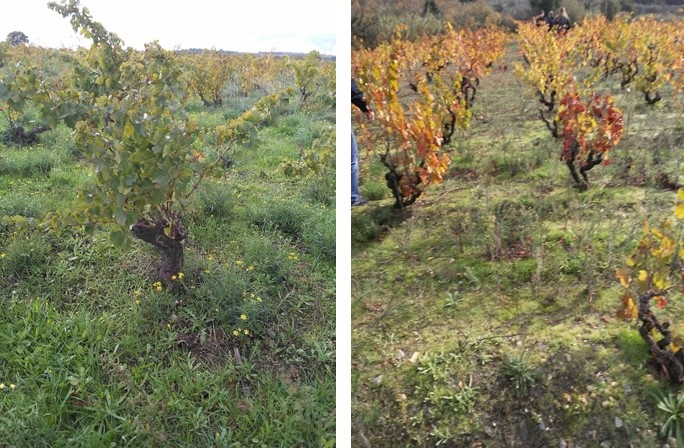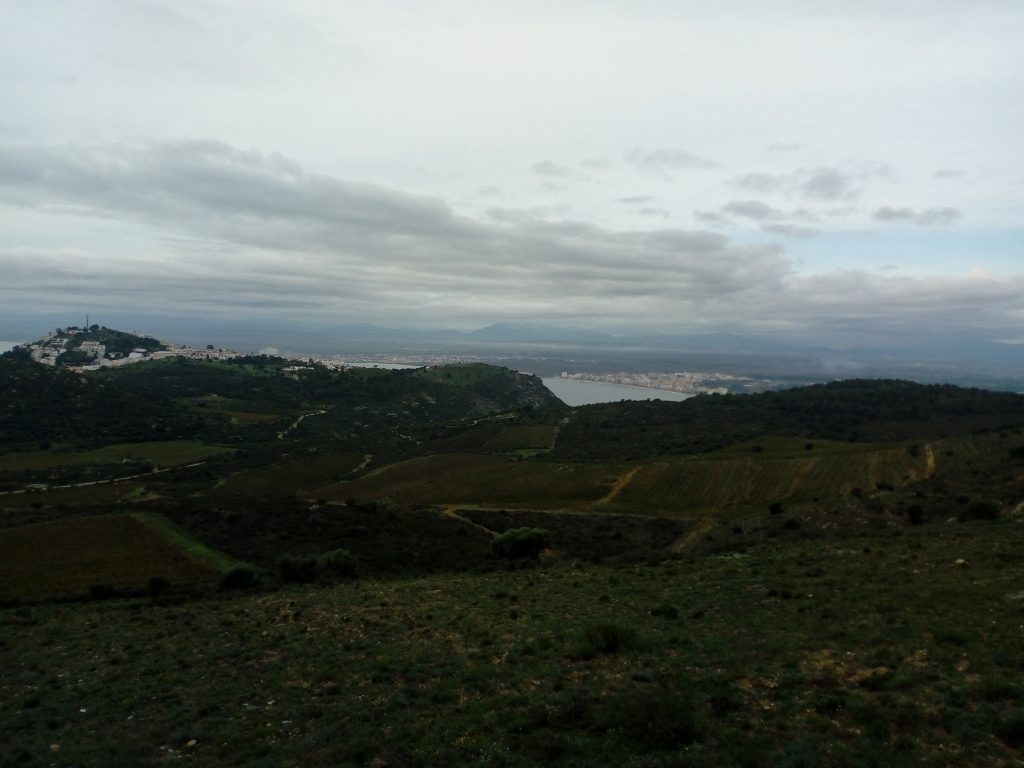One of the main objectives of the LIFE MIDMACC project is the implementation and testing of different landscape management measures to meet climate change related challenges and to improve socioeconomic development in mid-mountain areas of Spain. One of these adaptations measures is based in the use of different agronomic practices such as green soil coverage, slope management (terraces) or training systems, while maintaining a high level of competitiveness and quality. In Catalonia, this pilot experience is carried out in three vineyards belonging to Celler Espelt (Roses, Alt Empordà), Celler cooperatiu d’Espolla (Espolla, Alt Empordà) and Llivins (Llívia, Cerdanya).
Plots in Espolla will be between 100 and 120m a.s.l., and those in Roses (150-170m a.s.l.). Espolla is at Albera massif, in the Eastern Pyrenees, near the coast but 13km apart from the sea, while the plots in Roses, although at slightly higher altitude, are at less than a kilometre from the sea, so receiving full sea influence. In Espolla, cover crops have been introduced recently (2019) or will be introduced within the project (2020), in contrast with the traditional mechanical or herbicide weed removal. The plots in Roses present contrasting slope management (terraces vs. natural slope) and training (gobelet vs. espalier).
The plots in Llívia, in the Central Pyrenees, are in a single estate, at a much higher altitude, 1200m a.s.l. One plot is quite new, in a former mare pasture area (stablished as a vineyard in 2013), and a second plot will be stablished in 2020 in an adjacent field, presently a cropland.
By combining all plots in Catalonia, several agronomic practices will be tested as adaptation measures, together with other relevant effects, such as sea proximity. The inclusion of high altitude vineyards will serve two purposes: first, showing the limits of the use of vineyards as adaptative tools for the mid mountain; and second, bridging to the result in other grapevine plots in the project (La Rioja) and outside the project (vineyards in la Cerdanya and other places in the Pyrenees of other wineries not included in the project).
In these plots, soil water content will be followed with soil moisture probes placed at different depths, and the effect of the agronomic practices and soil moisture on soil microbiota will be followed. Seasonal rainfall simulations will also be performed to study soil erosion, one of the major concerns for wine growers in the mid mountain.











